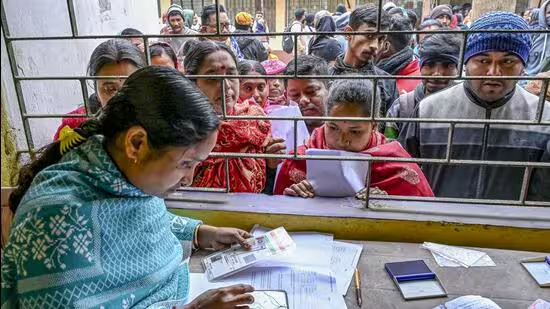India’s Women: A Timeless Force in Defending Nation and Dharma
- MGMMTeam

- Nov 20, 2025
- 4 min read
India’s history is marked not only by the valour of its celebrated male warriors but also by the extraordinary courage of its women, who consistently stood at the forefront of defending the nation and preserving its spiritual ethos. Defence Minister Rajnath Singh’s recent remarks in Lucknow brought this truth into renewed focus as he declared that Indian women have “never lagged behind in protecting the nation and its religion.” His tribute to freedom fighter Uda Devi Pasi served as a powerful reminder of the legacy of women’s bravery that continues to shape India’s present and future.

Uda Devi Pasi: The Dalit Warrior Who Redefined Courage
A Forgotten Hero of 1857 Reclaimed in Public Memory
Uda Devi Pasi’s story is one of extraordinary defiance and sacrifice. Born in a marginalized Dalit community in 1830, she rose to prominence during the First War of Independence in 1857. Inspired by Begum Hazrat Mahal, she formed a women’s battalion and actively participated in the uprising that challenged British colonial rule. Her defining moment came during the Battle of Sikandar Bagh, where she strategically positioned herself atop a tree and engaged in sniper fire, reportedly killing 36 British soldiers before being martyred.
Her unconventional battle tactics and unmatched resolve left even British officers in awe, prompting them to remove their hats in respect—an extraordinary gesture towards a rebel they had been ordered to crush. In honour of her martyrdom, Rajnath Singh and Chief Minister Yogi Adityanath unveiled a 12-foot, 6-ton statue of Uda Devi in Lucknow, symbolizing the recognition long denied to her and to the many unsung women warriors of India’s past.
Women in the Indian Armed Forces Today
From Barriers to Breakthroughs Across Land, Air, and Sea
Rajnath Singh used Uda Devi’s story to spotlight the remarkable progress India has made in integrating women into its modern defence structure. Today’s women are not mere observers but active participants in shaping India’s security landscape. They serve in high-altitude posts like Siachen, operate on naval warships, fly fighter jets, and take part in counter-terrorism missions.
This transformation has been supported by historic reforms, including the Supreme Court’s approval of permanent commission for women officers and the opening of the National Defence Academy to female cadets. The admission of women into military schools has further broadened the pathway for young girls aspiring to serve the nation. Increasing participation in operations—such as women pilots and soldiers contributing to missions in Pakistan and Pakistan-occupied Jammu and Kashmir—shows that gender is no longer a barrier to operational roles that were once considered off-limits.
A Growing Legacy of Trailblazers
Women Officers Who Inspire a New Generation
The 21st century has created space for many women to rise to heights that were unimaginable even a decade ago. Figures such as Lt Gen Madhuri Kanitkar have pushed boundaries by becoming some of the highest-ranking female officers in India’s military history. Others like Shanti Tigga have broken ground as female jawans, proving that courage and determination transcend gender. These achievements reflect a broader societal shift where women are increasingly recognised not just for symbolic contributions but for their strategic, operational, and leadership roles in the nation’s defence.
Why Uda Devi’s Story Matters Today
History, Identity, Empowerment, and National Purpose
Honouring Uda Devi reclaims a lost chapter of India’s freedom struggle that included powerful contributions from Dalit women, whose voices have long remained on the margins of mainstream history. Her life is a reminder that patriotism, sacrifice, and bravery are not bound by caste or gender. Recognising such figures strengthens social pride, inspires youth across communities, and reinforces the narrative that national defence is a collective responsibility.
Rajnath Singh’s assertion that “every daughter of India can become Uda Devi” reflects an aspirational India—one where women play decisive roles in strengthening national security, contributing to strategic operations, and shaping the future of the armed forces.
The MGMM Outlook
India’s history has always been enriched by the courage of women who stepped forward to defend both the nation and its dharmic identity, a truth highlighted again through Rajnath Singh’s tribute to Uda Devi Pasi. Her legacy—rooted in exceptional bravery during the 1857 uprising—reminds us that women from every community, including those pushed to the margins, have played defining roles in shaping India’s resistance against oppression. Uda Devi’s strategic brilliance in the Battle of Sikandar Bagh and the belated honour she now receives reflect not just a forgotten chapter of history, but a deeper narrative of women’s agency and sacrifice that mainstream accounts often overlooked.
In today’s India, this legacy evolves into a powerful contemporary reality as women rise across the armed forces, from Siachen to naval ships to fighter cockpits. The reforms enabling permanent commissions, NDA entry, and expanded operational roles show that the nation is finally embracing women not as symbolic figures but as frontline defenders. Modern trailblazers like Lt Gen Madhuri Kanitkar and Shanti Tigga embody a new era where courage is measured by competence, not gender. Seen through our viewpoint, India’s journey is a continuous bridge between forgotten heroines like Uda Devi and the emerging generation of women transforming national defence—proving that protecting the nation and its ethos has always been, and will always remain, a shared responsibility driven by timeless female strength.
(Sources: The Statesman, India Today, DD News)




Comments